With just 10 days to go until Britain is due to leave the European Union, what options are on the table to break the impasse?
Brexit: What Happens Next?
With just 10 days to go until Britain is due to leave the European Union, what options are on the table to break the impasse?
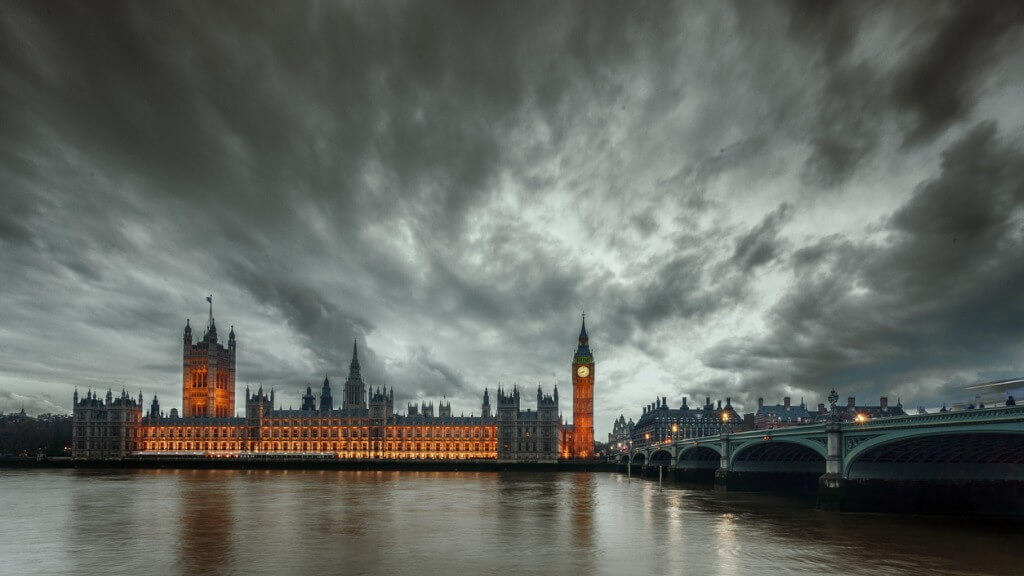
Speaker John Bercow’s ruling that the Government cannot bring Theresa May’s Brexit deal back to Parliament without significant changes has driven a coach and horses through the Prime Minister’s plans.
But with just 10 days to go until Britain is due to leave the European Union, what options are on the table to break the impasse?
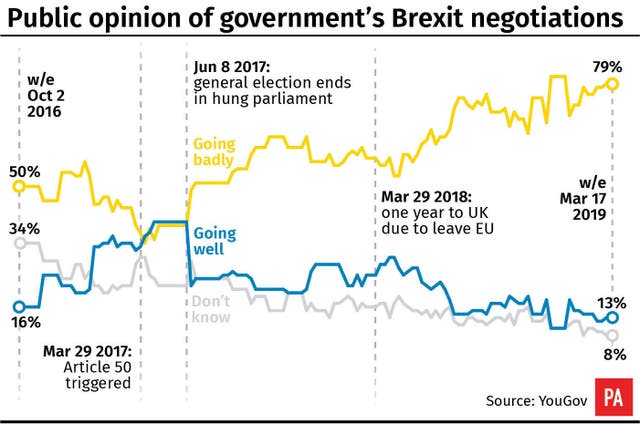
Prorogation
Summoning the Queen to solve the problem is a drastic measure, but it is one way to get around Mr Bercow’s ruling that the deal cannot be brought back unchanged in this session.
Prorogation marks the end of a parliamentary session, and would enable the Government to start a new session and pose the question on the deal again.
The idea has been mooted by Tory Brexiteer Jacob Rees-Mogg and the Solicitor General Robert Buckland, but the Brexit Secretary Stephen Barclay poured cold water on the idea.
He said involving the Queen was not a realistic option and not the way forward.
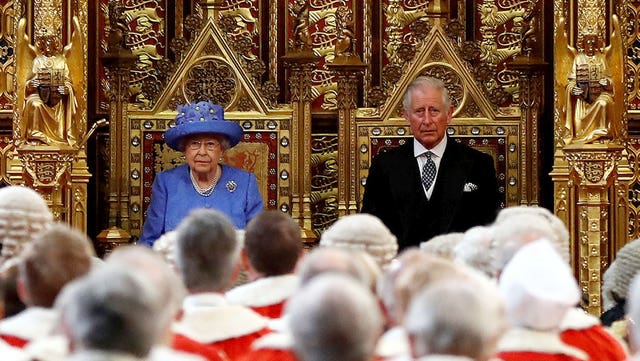
EU concession
Brexit will be on the agenda again when the Prime Minister attends the EU summit in Brussels on Thursday.
Despite the EU’s insistence that the deal cannot be renegotiated, Mrs May could seek to use the talks to secure a substantial change, or at the very least a fig leaf, to amend her deal.
Number 10 will be trying to work out what would constitute such a change in the eyes of the Speaker.
It is not known whether EU approval of a long delay to the UK’s exit, or suggestions of a “Stormont lock” to ensure any new regulations imposed on Northern Ireland would either be adopted by the entire UK or not at all, would meet his requirements.
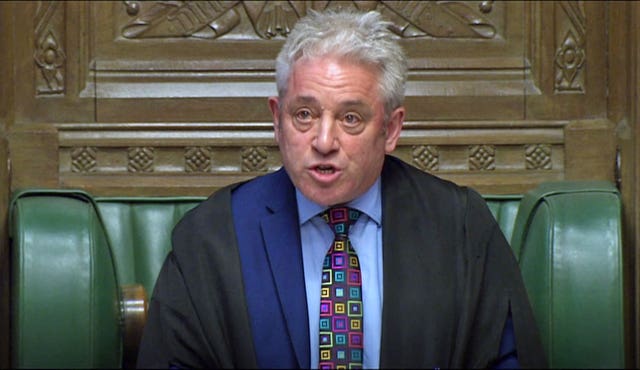
Overruling the Speaker
If Mrs May is confident she could finally get a majority for the deal, she could table a paving motion to prepare the way for another vote.
Number 10’s former director of legislative affairs, Nikki da Costa, suggested that the motion could state that “notwithstanding the convention of the House and the ruling of the Speaker” the House would consider the deal again on a specific date, she wrote in the Telegraph.
If the vote on the motion was won, it would prove it to be the will of the Commons and therefore suggest the deal might pass if put before MPs a third time.
Tory MP Nick Boles also floated the idea, writing on Twitter that if the Prime Minister thinks she has a majority for a third meaningful vote then she will “also have a majority for a motion to set aside the Speaker’s ruling on the Erskine May convention”.
Not sure what all the fuss is about. If the PM thinks she has a majority for a third meaningful vote, she will also have a majority for a motion to set aside the Speaker’s ruling on the Erskine May convention. If she doesn’t, no point making the attempt.
— Nick Boles MP (@NickBoles) March 19, 2019
No-deal
Crashing out of the European Union without a deal on March 29 – next Friday – remains the legal default.
MPs voted to rule out this option last week, but without a change in the law, Britain will exit next week.
Any extension must be approved unanimously by the EU27, and some have signalled that they would not support a short delay if MPs have not agreed on a plan.
If the EU27 refuse to grant an extension and MPs again reject her deal, Mrs May will be confronted by the unenviable choice between halting Brexit by revoking Article 50 – something she has vowed not to do – or going ahead with a no-deal withdrawal which she says will damage the economy.
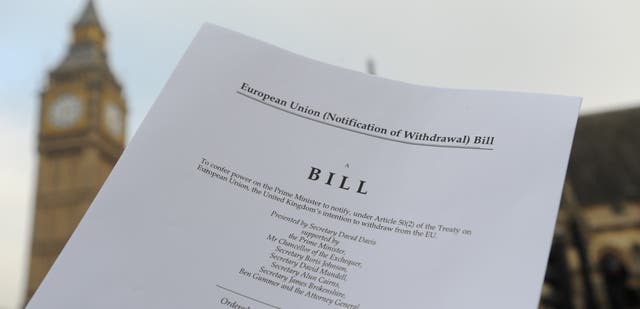
General election or second referendum
If the options above are exhausted to no avail, the question may be put back to the public in the form of a second referendum or a general election.
The likely outcome of either of the options is anyone’s guess, but the result could give a mandate for the next steps in the Brexit process.
By Harriet Line, Press Association Political Correspondent.
Thanks for signing up to Minutehack alerts.
Brilliant editorials heading your way soon.
Okay, Thanks!

